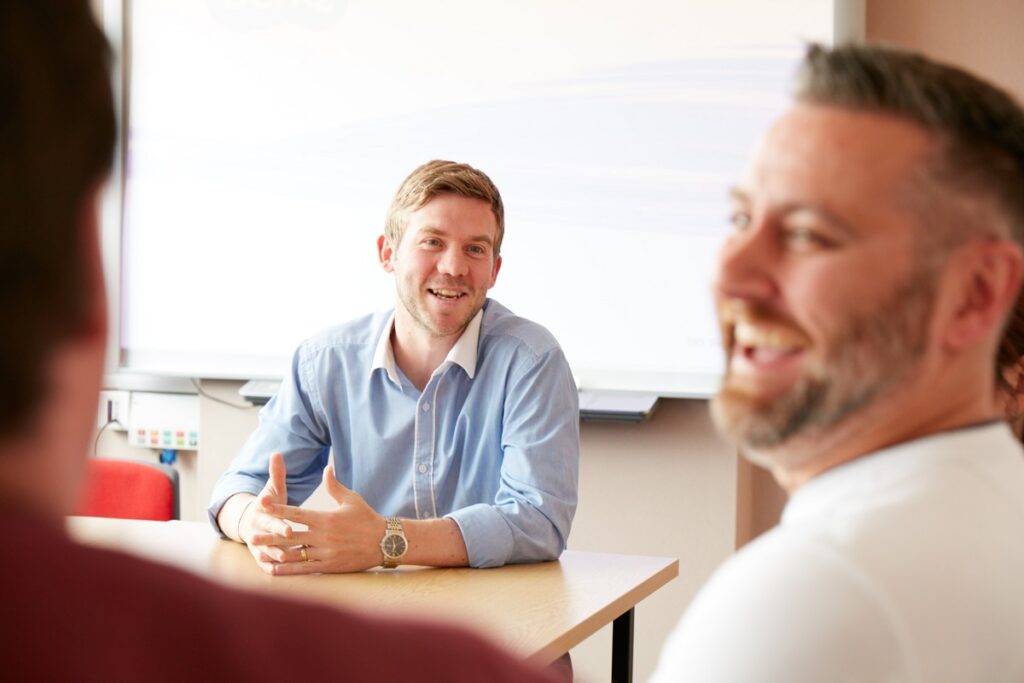Not-for-profit (otherwise known as Third Sector) organisations have their own set of challenges and needs when it comes to L&D. In this series, we will hear from several charities and organisations on what their learning priorities are for the coming year, what their pain points are, and what they've been finding effective in the development of their staff.
Velda Barnes is Head of Learning & Development at Addaction – a Leading UK drug & alcohol charity, supporting people, families & communities into recovery.
We spoke to Velda about the approach she has taken to developing employees in the face of budget constraints, what their successes have been, and where they would like to focus their attentions next.
What are your development priorities for the next year?
We’ve spent the last few years focusing on developing the skills of our biggest staff group, our front line practitioners. We’re now refocusing some of our resources on developing our team leaders and operational managers.
We’re in the process of designing a structured leadership programme aimed at developing skills for this group of managers in three key areas: managing people and performance; managing services; and leadership skills and self-management.
The delivery of the programme will be blended with bespoke elearning, webinar sessions and face-to-face sessions being delivered by members of the L&D team.
What are your biggest challenges when developing staff?
Geography is always a challenge when it comes to face-to-face delivery. We have 1,700 staff working in 150 different sites in England and Scotland, so planning to meet needs can be tricky.
Another issue for us is how our services are funded. Budgets are increasingly tight with a greater focus on outcomes, often linked to a payment by results structure. This can make it difficult for managers to let staff attend training, particularly if others are absent.
Our technology is somewhat lacking in sophistication so we are restricted in what we can achieve.
While we do use online learning, our technology is somewhat lacking in sophistication so we are restricted in what we can achieve. However, we do have a proposal in place to address this.
One thing I am grateful for is that, despite pressures on budgets, the L&D team is viewed as a vital organisational resource and as such we have not faced the cuts that many others in the charity sector have done.

What have been your big successes in developing your teams?
Blended learning has definitely been a success for us. When the L&D team was created in 2009, we had a simple approach to deciding delivery methodology – if it is skills based it happens in a face-to-face setting; if it is knowledge based it goes online.
This approach has continued to work for us and has the advantage of staff being able to access knowledge-based learning, including all our mandatory courses, as and when they need it with a consistent message and learning outcomes. It has also meant that we can focus our precious face-to-face resources where they will have most impact on service delivery.
We use an internal commissioning model that has also been really helpful in identifying and meeting local learning needs across our services.
Not-for-profit (otherwise known as Third Sector) organisations have their own set of challenges and needs when it comes to L&D. In this series, we will hear from several charities and organisations on what their learning priorities are for the coming year, what their pain points are, and what they've been finding effective in the development of their staff.
Velda Barnes is Head of Learning & Development at Addaction – a Leading UK drug & alcohol charity, supporting people, families & communities into recovery.
We spoke to Velda about the approach she has taken to developing employees in the face of budget constraints, what their successes have been, and where they would like to focus their attentions next.
What are your development priorities for the next year?
We’ve spent the last few years focusing on developing the skills of our biggest staff group, our front line practitioners. We’re now refocusing some of our resources on developing our team leaders and operational managers.
We’re in the process of designing a structured leadership programme aimed at developing skills for this group of managers in three key areas: managing people and performance; managing services; and leadership skills and self-management.
The delivery of the programme will be blended with bespoke elearning, webinar sessions and face-to-face sessions being delivered by members of the L&D team.
What are your biggest challenges when developing staff?
Geography is always a challenge when it comes to face-to-face delivery. We have 1,700 staff working in 150 different sites in England and Scotland, so planning to meet needs can be tricky.
Another issue for us is how our services are funded. Budgets are increasingly tight with a greater focus on outcomes, often linked to a payment by results structure. This can make it difficult for managers to let staff attend training, particularly if others are absent.
Our technology is somewhat lacking in sophistication so we are restricted in what we can achieve.
While we do use online learning, our technology is somewhat lacking in sophistication so we are restricted in what we can achieve. However, we do have a proposal in place to address this.
One thing I am grateful for is that, despite pressures on budgets, the L&D team is viewed as a vital organisational resource and as such we have not faced the cuts that many others in the charity sector have done.

What have been your big successes in developing your teams?
Blended learning has definitely been a success for us. When the L&D team was created in 2009, we had a simple approach to deciding delivery methodology – if it is skills based it happens in a face-to-face setting; if it is knowledge based it goes online.
This approach has continued to work for us and has the advantage of staff being able to access knowledge-based learning, including all our mandatory courses, as and when they need it with a consistent message and learning outcomes. It has also meant that we can focus our precious face-to-face resources where they will have most impact on service delivery.
We use an internal commissioning model that has also been really helpful in identifying and meeting local learning needs across our services.





